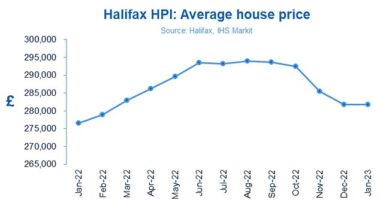A GRANDPA was conned out of £17,000 by sick phone scammers after they pretended to be his bank.
John Fillingham, 80, was packing his belongings to relocate from Essex to North Yorkshire to be closer to his children in April 2019 when he received a call.
The caller claimed they were from John’s bank and said that someone was trying to access his account.
They then told the former engineering designer that he needed to move his money to a safe account.
John, who had lived alone since his wife died in 2009, was initially sceptical.
However the scammers managed to convince him to transfer the cash following a series of security questions.
Read more Money News
“It was a Friday and I was sorting things out ready for my move when the phone rang,” John told The Mirror.
I didn’t have time to think so I did it.
John Fillingham
“They said they were my bank and someone was using my card and I had to move my money to keep it safe.”
John had second thoughts after the call ended and attempted to redial the number.
He continued: “I didn’t have time to think so I did it. It was when I hung up and tried calling them back that I grew suspicious.
Most read in Money
“I was told I’m not covered – it’s my fault because I used my own computer to move the money.”
When John visited his local branch the next day he was told there was nothing they could do.
Luckily for John, three years after he was initially scammed his bank recovered the full £17,000 along with interest.
It comes after a Co-op customer has said he feels demoralised after his £100,000 life savings vanished from his account.
Pensioner Paul Henderson, from Glen Parva, Leicestershire, believes he was “scammed” out of his money.
He received three phone calls claiming to be from the bank’s fraud department on December 13.
Meanwhile another scam victim burned down her old office to make way for a new one – but it was never delivered.
Lucy Fletcher, 46, forked out £3,600 for a purpose-built shipping container office.
How to spot a scam and what to do if you’re a victim
According to the Co-op, telephone-based impersonation scams are becoming more commonplace.
If you divulge sensitive information about your account you could find it taken over by criminals.
A fraudster could call you up and pretend to be a member of staff, say, from the bank’s fraud department or customer services.
They might say a fraudulent payment has been made from the account and they need to authenticate them before the issue can be resolved.
The scammer will then ask for personal, financial or bank account security details in order to gain access to the account online and potentially clear the entire account out of any funds.
To do all of this, they need the one-time security passcodes that the bank sends to customers, so they will manipulate and coerce the customer into revealing those codes.
How to stay safe
Never share any one-time passcodes or any of your passwords or other security codes with anyone – including anyone claiming to work for your bank.
Never agree to authorise a transaction that you have not physically made yourself in online banking.
Do not agree to download software or an app onto your device that allows someone to access it remotely
Do not to trust the caller display on your phone to verify a caller. Fraudsters can easily manipulate this.
Simone Fox, director of specialist services at The Co-operative Bank said: “We are doing all that we can to keep our customers safe, but we are seeing criminals becoming more sophisticated in their approach to scams, even going so far as to impersonate members of staff.
“We are asking our customers to remain vigilant and never trust anyone who makes an unsolicited call asking them to disclose any passcodes.
“I cannot stress enough that no member of staff at the bank will ever ask you to divulge any codes sent to you for verification purposes.”
If you think you have been a victim of a scam, you should report it as soon as possible.
There is no guarantee you’ll get your money back, but banks will often compensate you if you can show you did not know the money would leave your account.
You can forward scam emails to [email protected] and should also contact your bank and report it to Action Fraud, which will give you a crime reference number.
Check if your bank is signed up to the voluntary APP code, which indicates it has pledged to reimburse customers who have been tricked into sending money to scammers.
If your bank is signed up and refuses to refund you, you can complain and ask it why it is not abiding by the code.
You may be able to report the case to the Financial Ombudsman Service, which could order your bank to compensate you.
This post first appeared on thesun.co.uk










